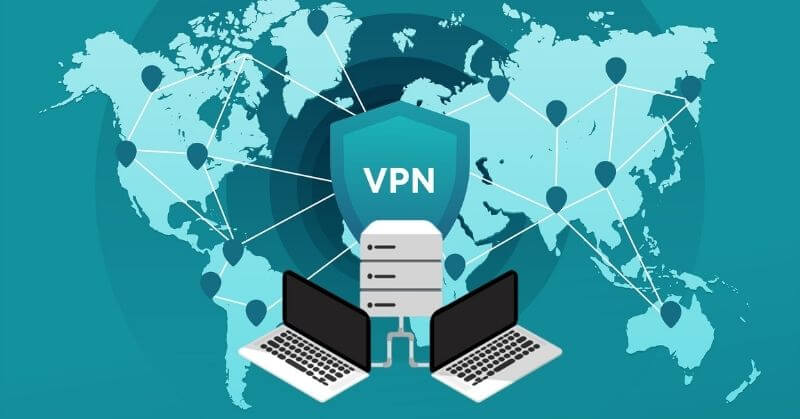Privacy and security on the internet have for long been a highly discussed topic, and it’s likely to become even more important as time goes on. But what is really the best solution available to consumers and businesses alike?
What Is A VPN?

VPN, or Virtual Private Network, is a program that works by encrypting users’ IP addresses and internet activity. It is a popular form of anonymity software used by people all across the world that wish to keep their identities safe on the internet.
Not only does a VPN help with concealing users’ real identities on the internet from ISPs and websites, but thanks to strong encryption there is also an added benefit in the form of security. All data that passes through the so-called VPN Tunnel is safe from hackers and malicious viruses that otherwise could gain access to users´ devices and sensitive information.
VPNs are very popular in the modern world and most people end up using one eventually. The main struggle for consumers has rather been in choosing a reputable provider amongst the ocean of brands that now claim to offer the best VPN available.
What Is A Proxy?

Online proxies, just like VPNs, route the source traffic requests through a middleman server which conceals the true origin of the client request. The main difference compared to a VPN is that proxies do not encrypt the data being transferred, which may be a concern for users placing a high emphasis on their security.
There are several different types of proxies, but they can be mainly categorized into free proxies and paid proxies. Free proxies are, just as the name implies, free for anyone to use at any time and can often be found on publicly listed sites. These proxies are generally considered highly unsafe for security reasons as well as being unreliable from a performance standpoint, which is why they’re considered a bad alternative in almost all cases.
Paid proxies on the other hand are of high quality and sold by dedicated proxy providers. They can be classified into sub-categories such as data center proxies, mobile proxies, and residential proxies. Businesses heavily involved in IT and marketing typically choose monthly residential proxies to help them collect data through means of web scraping, advertisement verifications, and other activities.
The downside to paid proxies is that they require a certain level of technical knowledge in order to be utilized to their full potential, hence they’re not the first-hand choice for the average user.
What Is The Best Alternative?
Whether to choose a proxy or VPN depends on the needs of the intended user. Cost-wise, it only makes sense for a consumer to choose a VPN service. Even the best VPNs available on the market have pricing options that will barely make a scratch on your wallet.
Paid proxies are more expensive in nature due to their potential and are marketed heavily to businesses or professional individuals. This is because such users require anonymity for more demanding work tasks like data collection or software testing, which VPN services are not sufficient for.
To conclude, we can say for sure that any form of shielding is better than nothing when it comes to protecting yourself on the internet. The exception would be free anonymity services, don’t use them if you are serious about your privacy and security.
Follow Us: Facebook | Instagram | Twitter |
Entertales is on YouTube; click here to subscribe for the latest videos and updates.














